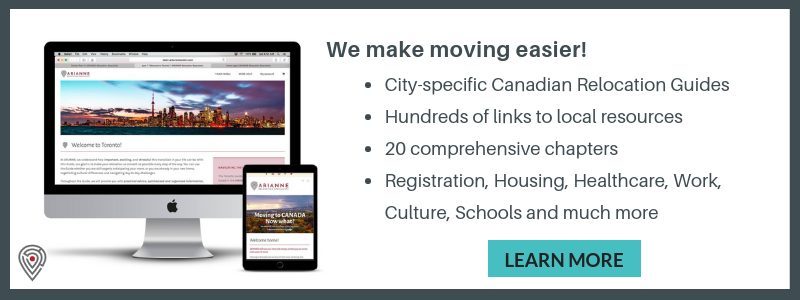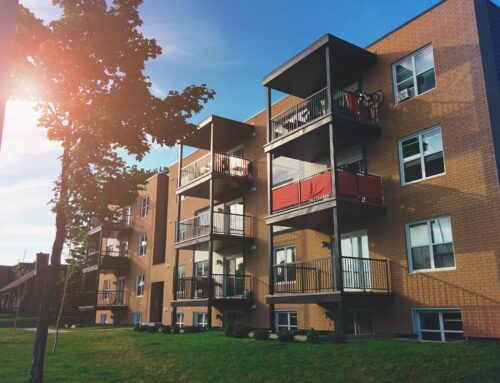If you’re serious about moving to Canada and sticking around for more than a few hours, there are just a couple of things you are absolutely going to need: food and shelter. Now as far as the food goes, you can probably get that sorted out on your own. But when it comes time to put a roof over your head, you have to realize that finding a nice home is nothing like shopping for a good sandwich. Like most anywhere else in the world, buying a house in Canada can be a long and somewhat complicated process.
This is not a decision you want to rush into, but at the same time, you can easily overwhelm yourself with prolonged research and arduous deliberation. So, in order to help get you well prepared and informed, while also avoiding the pitfall of “analysis paralysis”, we’ve compiled this handy guide to make buying a home in Canada as straightforward as possible.
Before you buy a house in Canada
Before you even begin looking at houses, there a several things you need to be thinking about. Here’s a checklist we put together, with some help from the Canada Mortgage and Housing Corporation (CMHC).
Type of house:
- Decide what sort of neighbourhood you want to live in (quiet suburb, hopping entertainment district, rural countryside, etc)
- Determine what type of house you want (single family home, high rise apartment, cabin in the woods, etc.)
- Consider the size of the home (how many bedrooms? how many bathrooms? garage? garden?)
Budget:
- How much have you set aside for a down payment?
- What sort of monthly payment can you afford?
- Consider other expenses (property tax, home insurance).
- Rule of thumb in Canada says that your monthly housing costs should be no more than 32% of your gross monthly income. (And your total monthly debt load, including the mortgage, should be no more than 40% of your income.)
NOTE: Non-permanent residents of Canada will pay an additional 15% on property purchased in the Toronto area. Otherwise, there are no restrictions to prevent non-residents from buying property in the country.
Once you’ve given some serious thought to what sort of house you want and what sort of house you can afford, you can begin to set some realistic expectations. Depending where you’re moving from, you may be in for a shock when you see the cost of housing in cities like Toronto and Vancouver. (See below.) Keep in mind, home prices will be lower in cities like Calgary and Winnipeg, and you can always save money by looking at houses further away from metropolitan centres.
Consult the experts
You’ve done some homework, and perhaps a little soul searching. Now it’s time to speak with the professionals.
- Find a Realtor. Be sure to get an independent Realtor who will represent you and advocate for your interests. It’s never a good idea to work with a Realtor who is representing both the seller and the buyer.
- Get pre-approved for a mortgage so you’ll know exactly what you can afford, and try to find a house a little below your maximum amount. (Be sure to read our article on Mortgages in Canada.)
- Consider hiring a lawyer to review contracts and defend your interests.
- Get an appraiser to determine the fair market value of the home.
- Hire a home inspector to assess the condition of the home and identify any serious (or not-so-serious) problems.
- Shop for home insurance, which is mandatory in most cases.
Know the laws
Canada regulates industries like banking and real estate quite strictly, and so most all transactions remain very transparent and aboveboard. Even so, there’s a lot at stake when you buy a house, and it never pays to be naive. To help immigrants and new arrivals better understand the legal landscape, we have written an article on Canadian real estate laws that every newcomer should know.
The most important law affecting foreigners is the Foreign Buyer’s Tax (mentioned above), which adds 15% to the price of any home purchased in the Toronto area by a non-permanent resident of Canada. In Vancouver, there are also speculation taxes that affect non-residents of British Columbia who purchase second homes in the Vancouver area. This speculation tax applies equally to foreigners and Canadians, and amounts to about 1% of the property’s market value, to be paid on an annual basis.
Non-Canadians who seeks to make money by purchasing rental property in the country will also find themselves paying an additional tax of 15% on all such rental income.
If you’re new to the country or making a substantial foreign investment, we would encourage you to hire an attorney or an accountant to review all of your contracts and legal documents before you sign anything or transfer any funds.
Tax Laws for Canadian Homeowners
Whether you’re a newcomer or a native Canadian, you need to be aware of some tax laws that apply to homeowners in Canada. The good news is, most of those laws should work to your advantage.
- The Home Buyers Plan entitles first-time home buyers to a non-refundable $5,000 tax credit.
- The Principal Residence Designation exempts homeowners from paying capital gains when they sell a home which is their primary residence.
- Self-employed entrepreneurs who work from home can write off many home maintenance costs as a business expense.
- Seniors over the age of 70 are also entitled to write off a variety of household expenses, including housekeeping, snow removal, laundry, nursing and similar services.
If you hire a professional to file your tax, they should be aware of these rules, but it never hurts to know when qualify for a tax break.
Looking for a house
If you are new to Canada, we strongly encourage you to work with a Realtor. Real estate markets can fluctuate dramatically, and no one will better understand the current, local conditions like a competent Realtor. Speak to as many people as possible and ask for recommendations for a good real estate agent. Some are definitely better at their jobs than others. You can also interview a few before you hire one.
If you haven’t hired a real estate agent, here are a few other ways to search for houses:
- Word of mouth
- Social media
- Magazines and newspapers
- Search real estate websites
- Visit new housing developments
- Drive around a look for “for sale” signs
This might be the most important stage of the home-buying process. You’ll want to look at as many different properties as possible. If you can just keep waiting for the perfect house, your patience might just pay off. You may be tempted to settle on a house that you only just like a little bit, and end up regretting it for years.
So keep looking, and then narrow down your options to a short list. If you love a house, revisit it several times, at different times of day, and bring a friend or two along to look at it with you. There are so many features to notice and consider when you buy a house; the more sets of eyes you have, the better off you’ll be.
Examining and scrutinizing your prospective home
Even before you hire a home inspector to thoroughly assess the condition of your potential home, you need to be on the lookout and conduct your own due diligence. Here are a few things to watch out for.
- Take a good look at the roof. An leaky roof could cause serious problems and expensive water damage. Normally, a good roof should last 20 or 30 years, and an old one will cost several thousand to replace. If it’s due for replacement, the price of the home needs to reflect that.
- In Canada, good insulation is critical. Take a close look at the windows and doors and find out what kind of insulation the house has.
- Don’t get distracted by old carpet and ugly paint. You’ll probably want to replace some or all of the flooring, especially if it’s carpet. And you can easily transform a room with a coat or two of fresh paint.
- Get to know the lay of the land. If you can visit the house on a rainy day, take a look at where the water runs and collects. Look out for pooling in the driveway or near any doors. And watch where the water flows relative to the neighbours.
- Take several trips through the house. Really get to know the floor plan and see if it makes sense. Take a look at where they put the outlets, the light switches and so on. While you’re at it, check under the sinks for water damage. Some homes are more intelligently designed than others, and some are just old.
- Use all your senses. Listen for sirens, low flying aircrafts, gun shots, etc. And keep your nose out for bad septic tanks, gas leaks, and so on.
- Drive by the house at different times of day. If you have kids, you might want to pay attention to the traffic flow. Does traffic increase during rush hour? Do cars race down your block? And visit the neighbourhood after dark. Some parts of town start to look a little spooky after the sun goes down.
A lot of these issues could be serious red flags or even deal breakers. But others could be used as bargaining chips to help negotiate the purchase price. In any case, be sure to bring in a licensed home inspector to really check out the inner workings of things like the plumbing and the heating system.
Buying a house
Once you’ve decided on your absolute favorite home, it’s time to make an offer. This is when it’s almost essential to have a good real estate agent on your side. The offer is your opportunity to make specific demands and negotiate the price. Depending on market conditions, you may have to make a full price offer, or even go over the asking price; or in a slow market, the buyer could have more leverage to offer a lower price and/or demand certain repairs on the house.
After receiving your offer, the seller will have a chance to accept your offer, reject it, or counter-offer with different terms and conditions. This often makes for an exciting and stressful few days, so just try and keep it together. You may or may not reach an agreement with the seller, or another buyer could out-bid you with a higher offer. A lot of things could happen.
When your offer has been accepted, you still have to go through a few formalities before they hand you the keys to the front door. In the United States, the buyer places the funds into an escrow account, and then the funds are distributed at the “close of escrow”, which usually takes about 4-6 weeks. In Canada there are no escrow companies; the money goes into a brokerage and a lawyer handles the transfer of funds, so there is a similar waiting period.
The mortgage
At this point, you must formalize your mortgage, even if you were pre-approved as mentioned earlier. To protect its assets, the lender will usually require a long list of documents, confirming the value of the home. Be prepared to provide the following documentation:
- Description of the property
- Copy of the real estate listing
- Appraisal
- Tax assessment
- Home inspection report
- Land survey
- Estimated utilities and repair expenses
- Copy of the signed offer
Canadians ordinarily make a down payment between 10-25% of the home purchase price and take out a mortgage for the balance. A new law passed in 2017 requires all borrowers who make a down payment of less than 20% to secure mortgage insurance as a way of protecting lenders from getting caught on the wrong end of a housing bubble. Newcomers and non-residents who have not established a credit history in Canada will typically be expected to make larger down payments (35%) and may also be required to demonstrate sufficient funds in the bank.
For a comprehensive overview, take a look at our article on Canadian Mortgages.
Canadian housing prices at a glance
Prices can vary greatly between different neighbourhoods even within a single city, so average housing prices can sometimes be misleading. Having said that, here are some average prices in the major Canadian cities as of October 2018. (Source: Zolo)
- Calgary $434,000
- Edmonton $379,000
- Montreal $350,000
- Ottawa $420,000
- Toronto $875,000
- Vancouver $1.1 million
- Winnipeg $304,000
As you can see, home prices are significantly higher in Toronto and Vancouver than in the rest of the country. Factors like economy and climate make these the two cities very desirable. In fact, nearly half of all new arrivals to Canada end up heading to Toronto. Keep in mind, housing prices will drop quickly as you head to the outskirts and away from the city centers.
For more recent figures, visit our article on Canadian Real Estate prices in spring 2019.
Selecting a city
Maybe your company is sending you to a new office in Canada, in which case you won’t have much say in which city you move to. But if you’re moving to Canada independently or just looking into purchasing some investment property, you’ll need to get a clear picture of the country. And then you’ll need to zero in on one city.
For starters, here’s a quick introduction to the major Canadian cities.
Toronto
As the country’s economic capital most populous city, Toronto has long been the top destination for immigrants relocating to Canada. Nearly six million people make their home in the Greater Toronto Area (GTA), and statistics indicate that approximately half of the city’s population were born outside of Canada.
Toronto is booming with industry, especially in the media, technology and financial sectors. The city also serves as a hub for the manufacturing industry and hydroelectric power. And with a steady influx of immigrants and new residents, you can be sure that there is always plenty of construction taking place.
With so many things to make Toronto such a desirable city, the one drawback here might be the housing market and the high cost of living. In recent years, home prices and monthly rents have skyrocketed, making it increasingly difficult for young people and families to live close to the city center. You can expect to pay well over a million for a home in central Toronto.
Cost of living indicator, based on average monthly rent. (according to Numbeo.com)
- One-bed room apartment in the city center $2,000
- One-bedroom apartment outside the city center $1,600
- Three-bed room apartment in the city center $3,500
- Three-bedroom apartment outside the city center $2,600
You can also visit our article on 9 Things you didn’t know about Toronto.
Montreal
If you’re looking for a taste of old Europe in North America, then you’ll want to consider moving to Montreal. The largest city in French-speaking Canada, Montreal retains not only the language of the old world, but also a great deal of the architecture and the way of life. For obvious reasons, this is the first choice among immigrants relocating from France.
A greater metropolitan population of four million inhabitants makes Montreal the second largest city in Canada. With that comes a thriving economy. In recent years, Montreal has established itself as the North American hub for artificial intelligence research, attracting all the big names like Facebook, Google, Microsoft, DeepMind and others.
As the number one city in French Canada, Montreal has some of the most interestingly diverse culture on the continent. Like most major cities in Canada, Montreal has a flourishing population of immigrants from around the world. Combine that with the city’s French roots and origins, and you get a cosmopolitan composition like no other. Although French is the official language in the province of Quebec, Montreal is a actually a very bilingual city. Wherever you go, you can feel yourself teetering between North American and European culture.
Cost of living indicator, based on average monthly rent. (according to Numbeo.com)
- One-bed room apartment in the city center $1,100
- One-bedroom apartment outside the city center $750
- Three-bed room apartment in the city center $1,900
- Three-bedroom apartment outside the city center $1,300
You can also visit our article on 9 Things you didn’t know about Montreal.
Vancouver
Canada’s next largest city, with a metropolitan population of 2.5 million and only about 600,000 in the city proper, Vancouver has its own distinctively west coast appeal. Most of its inhabitants live on the densely populated peninsula, surrounded by rivers, mountains and the Pacific Ocean. Vancouver’s stunning geography and relatively mild climate make it one of the most livable cities in the world, as well as one of the most expensive.
Vancouver’s unique position on the west coast makes it Canada’s gateway to the Pacific Rim, with a port unlike any other in the country, in terms of international commerce. But today, the city’s major industries are entertainment, technology and tourism. A steady influx of immigrants gives Vancouver a rich diversity, similar to other Canadian cities. About half the city’s residents belong to a visible minority group, and among them a little more than half are Chinese.
Cost of living indicator, based on average monthly rent. (according to Numbeo.com)
- One-bed room apartment in the city center $2,000
- One-bedroom apartment outside the city center $1,550
- Three-bed room apartment in the city center $3,600
- Three-bedroom apartment outside the city center $2,600
You can also visit our article on 10 Things you didn’t know about Vancouver.
Calgary
Although famous for its rodeos and stampedes, Calgary is quickly becoming one of the most popular destinations for Canadian newcomers. With a population of about 1.3 million, you can find all the services of a big city without the headaches and impossibly high prices of a roaring metropolis. In 2018, The Economist magazine named Calgary the fourth most livable city in the world.
Cost of living indicator, based on average monthly rent. (according to Numbeo.com)
- One-bed room apartment in the city center $1,250
- One-bedroom apartment outside the city center $1,000
- Three-bed room apartment in the city center $2,100
- Three-bedroom apartment outside the city center $1,600
You can also visit our article on 10 Things you didn’t know about Calgary.
Elsewhere in Canada
Although the great majority of Canadian immigrants will choose to settle in one of the four big cities described above, there are several other options. With its booming energy industry and vigorous economy, the Alberta city of Edmonton is attracting more newcomers than ever before. Canada’s capital city may be small, but if you’re looking for culture and education without the big city congestion, Ottawa could be your best choice. Meanwhile, Winnipeg, Quebec City and the Maritime provinces all have their own distinctive charms.
Conclusions
Buying a house is a big deal. And if you’re coming to Canada from abroad, this one of the biggest steps you’ll take in becoming a Canadian. For a thorough overview of the immigration and relocation process, be sure to check out our articles on the 5 Steps to Canadian Immigration and Where to Live When Moving to Canada.
If you’re moving to Canada and looking for help buying a house, finding schools, registering for healthcare, and understanding the culture and society, ARIANNE Relocation has a number of products and services to help you. We’ve been helping families and professionals relocate to Canada for more than 20 years.
Photo Credit: Victorian houses in the Cabbagetown neighbourhood of Toronto (Wikipedia)









Leave A Comment